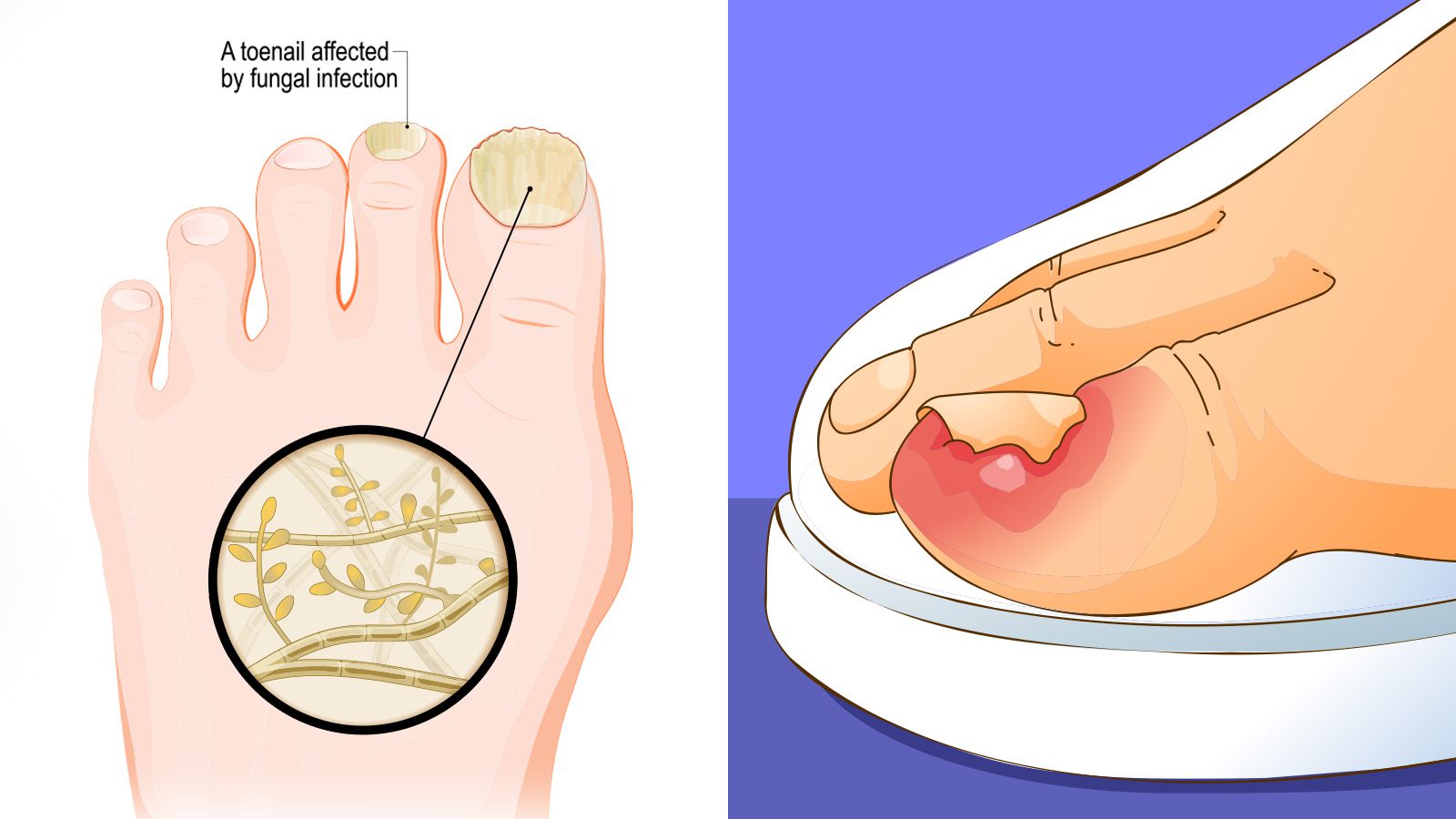There is usually some catalyst (or several of them) that leads someone to decide that some profound change is in order. Unfortunately, it is easy to live with these signs for a long time before even noticing what they are trying to say. The key to understanding what is going on in our life is recognizing how we feel. If we are feeling anxious, discontent, or bitter, it could be our body’s way of telling us it’s time to try to change our lives.
Here are ten signs it’s time to change your life:
Watch for these red flags.
1. You dread going to work more days than you don’t.
So much of our day and week is spent at work. That feeling of dread when you wake up or as the weekend nears its end is a sure sign that something is not right. Take some time to figure out what it is about your day at work that you dread and devise a plan for changing it.
2. You are living in the past or dreaming about the future.
Staying focused on better times, whether the past or the future, might be a sign of trying to escape the now. It is not uncommon to dream about a better life, and dreaming can be good. It’s when dreaming takes the place of doing that a problem exists.
3. People are constantly telling you to relax.
If the same message keeps appearing from friends and acquaintances alike, it might be time to figure out what is behind it. “You need to relax” is slang for “get over it” in today’s world. So when we hear it repeatedly, we are probably holding onto something we need to let go of.
4. You are jealous of other people’s successes.
Jealousy is a sign of discontent with our lives and has nothing to do with the other person’s accomplishments. It is hard to be happy about other people’s successes when we are feeling stuck in our life. It is time to ask ourselves what jealousy is telling us.
5. You wake up tired.
Waking up tired is a sign of discontent, not necessarily with work but with life in general. It is hard to get proper rest with worry and angst in our lives. When we live in a constant state of tiredness, it can signify struggle and strife in our life. It also indicates we are tired of fighting and are ready to admit defeat. Instead of giving up, figure out what you can do to get back on track. Life is meant to be lived happy, and happy isn’t tired.
6. If you are restless, it’s time to change your life.
The feeling of the need to do something or go somewhere is a clear sign that creativity is being stifled, and something must change. The inability to be content and sit still can suggest there is something else you are meant to be doing. If you are antsy, it’s your job to figure out what your body is telling you.
7. You gossip.
Gossiping is a way of deflecting the work we need to do in our lives to someone else. It is avoidance at its best. When we find ourselves gossiping, it is important to ask what we are avoiding in our life and then realize that facing it is the best thing we can do.
8. Everyone seems to annoy you.
Having a hard time living by the “don’t sweat the small stuff” motto might indicate some extra angst and negativity around. Nitpicking and always finding something wrong with what everyone is doing is a hint that there are some underlying issues. The issues can be anything, but it usually somehow indicates unhappiness with your life.
9. You have a constant sense of foreboding.
Waiting for something terrible to happen will eventually lead to something wrong happening. The other shoe doesn’t always have to drop, and knowing that can go a long way. Stop the worry and the predictions and start focusing on what you are doing right now.
10. You keep thinking, “there has to be something more than this.”
Thinking there is something more or something bigger usually means new opportunities are on the horizon. Be open to the things stirring up passion and creativity and follow them. The destination will most likely be precisely what you need.
15 Hacks to Create New Habits to Change Your Life
If you identify with any of the signs, it’s time to change your life. There are plenty of new habits you can form. Everyone needs a little motivation to keep their good habits going, and these tips will help. These hacks will help you create new habits that will change your life for the better.
1. Identify Triggers and Other Things Getting in the Way
Figuring out what’s getting in the way of sticking to good habits can make a difference in your life. Determining what’s hindering your progress allows you to decide what your first step must be. You can change your life to help avoid or ignore the things that could interfere.
Additionally, identifying triggers helps you interrupt your conditioned reactive response. You can develop new ways to handle triggers, making the best decisions for your new habits.
Sometimes the trigger can be as simple as needing a soda when you feel tired and thirsty. When you have the thought, your brain might think caffeine will help. Whatever your habit is, there will be at least one trigger linked to it.
However, implementing new habits means you’ll ignore your typical response and choose something helpful and healthy. Whatever your routine regarding cues, you must learn to reward yourself differently. As you identify your triggers and reward yourself differently, you’ll quickly change your life for the better.
2. Schedule Your New Habits on a Calendar
Life gets busy, making it hard to stick to new habits. When you run on autopilot, you’ll resort to your old habits instead of your new ones. By scheduling your new practices on a calendar, you’ll be more likely to stick to them.
Every hour of your life should have a purpose, including scheduled time for self-care and other things. When you want to implement new habits, put them on your schedule, and don’t bump it for anyone else. Plan at least a week ahead to ensure you accomplish everything and build discipline.
3. Focus on Things You’re Grateful For
Spend some time each morning thinking about why you are grateful. When you start your day with gratitude, it’ll help you make better choices throughout the day. It might help if you take a few minutes to write down what you’re thankful for.
When you have the good things in your life on your mind, you’ll feel more relaxed and healthier. You’ll be happier, and research shows that happiness changes your brain for the better.
4. Get It Over with Early On
If you do hard things first, you’re sure to get them done. If you struggle to stick to beneficial habits, make sure you save the easy tasks for last. Procrastination stands between developing better habits, but you can easily change your life.
When you want to stick to new habits, get them over with instead of saving them for the end. Take the action that improves your life before doing anything else. It might be challenging, but it’ll become easier as you practice doing the daunting things first.
5. Don’t Give Up If You Make a Mistake
Sometimes you’ll forget or give into temptation, but that doesn’t mean you should give up. If you miss an opportunity to implement your new habit, you can still stay on track. Start again at the next opportunity because research shows that it won’t hinder your progress.
6. Make Time for Meditation
When you meditate, it promotes mental health. Take a little time each day to focus on your breathing and draw your attention to the present. It’ll dramatically improve your life, reducing stress and negative emotions.
Meditation also improves your memory, promotes emotional control, and changes your brain for the better. With these positive changes, you’ll have an easier time sticking to new habits.
7. Only Compare Yourself to Who You Used to Be
Comparing yourself to others is detrimental, but comparing who you are now to who you used to be is beneficial. Think back a year or two and acknowledge how far you’ve come. It’ll give you more motivation to stick to positive habits.
Your goal in life should always be to become a better version of yourself. The only way to make it happen is to change your life.
8. Hold Yourself Accountable
Holding yourself accountable is one of the best hacks for creating new habits. Create a tracking system and set goals to help you stay motivated. Tracking your progress will help you want to accomplish your goals.
When you hold yourself accountable, it sometimes helps to include other trusted people. Set up regular check-ins with people who want what’s best for you.
9. Determine Your Reason
Start by figuring out why you have bad habits right now. Think about why you turn to unhealthy options when you could make another choice. When you know your reasoning, it’s easier to change your life.
Identifying why you want to improve your life can help you stick to the changes. Before deciding to change your life, determine your reason. It gives you motivation, and you can easily recall it during moments of weakness.
You don’t want your reasons to be vague or revolve around what you think you should do. Instead, they should revolve around specific ways you can improve your life. Make your habit part of a bigger goal worth the struggle and effort.
Without a focused reason, you’ll only force yourself to do things you don’t want to do. This method isn’t usually effective because it’s hard to find motivation. Instead, determine why you want to change your life, and you’ll have something to work toward.
10. Get Plenty of Sleep
Getting enough sleep is essential to your overall well-being and ability to form new habits. Don’t skip out on a night of sleep, even when you have things to get finished. It’ll help you think clearer, promoting productivity and beneficial habits.
11. Use Visualization to Change Your Life
When you want to buy something you don’t need, use visualization to reel in your frivolous spending. Imagine the item you wish to buy on the one hand in the money it costs in the other. It helps you determine if the money is worth the thing, giving you a chance to decide against spending.
When you figure out if you’d rather have the money or the item, it can help you cut back on impulse purchases. If your new habits revolve around spending, this is the perfect hack. No matter what practice you want to form, visualization can help make it happen.
Another way you can address the issue is by visualizing the amount of work you must do to pay for the item. Determine how many hours you’d have to spend working to regain the amount you’d spend. When you think of your spending this way, it’ll help you determine if each purchase is worth your time.
12. Mentally Practice
Research shows that mentally practicing a task can improve your performance. Mental practice can help you implement new habits because it makes your brain stronger. When you mentally practice, you can also give yourself a pep talk. Remember that you can do anything you set your mind to, and encourage yourself to give your best effort.
13. Use a System
Stopping a bad habit and implementing a better one both require a plan. You can’t rely on willpower and motivation because it won’t always make it happen. If willpower and motivation are your only plans, you’ll give in during moments of weakness.
Instead, develop and use systems to help you stick to your life changes. Your routines should include outside forces, making it easier to build new practices.
One system you can implement includes removing steps necessary to complete bad habits. Or make it harder to give in to temptation by adding additional steps to accomplish your bad habit. Additionally, you can eliminate steps to make beneficial habits easier to get done.
Other systems include:
- Adding positive habits to your daily calendar
- Tracking your daily progress
- Journaling your journey
14. Give Yourself Time
Many people falsely believe that it takes 21 days to form new habits. However, studies show that it can take two months or longer to make a habit stick. Everyone is different, and you never know how long it will take to form automatic behaviors.
Be patient with yourself if it doesn’t happen right away. It’s hard work to change your life, but stick to it, and it’ll all pay off. Expecting immediate change or striving for the 21-day mark can set you up for failure, so remember that it could take longer.
15. Create Smaller Goals
You likely have your long-term goal in mind, but you must focus smaller than that. Break your goal down into smaller goals that are easier to accomplish because each victory will make a difference.
For example, if you want to eat healthier, set your first goal is to buy healthy foods. Determine which healthy foods you enjoy and how you can make them into a meal. Then, your second goal could be to prepare the food.
Setting these smaller goals makes you more likely to accomplish your long-term desires. You can use this method for any habit because there are always steps to take when achieving your dreams.
Final Thoughts on Knowing It’s Time to Change Your Life
Deciding to change your life can be immediate, but the change itself doesn’t always happen that fast. Don’t let that stop you from moving forward. Even the most minor steps can help reduce the negative feelings and keep the motivation for change high.
The important thing is to do something right now because your only options are to embrace change or accept things.
Either way, it is crucial for us to pay attention to how we feel and do more of what makes us feel good.
“We must let go of the life we have planned, so as to accept the one that is waiting for us.” ~ Joseph Campbell

















